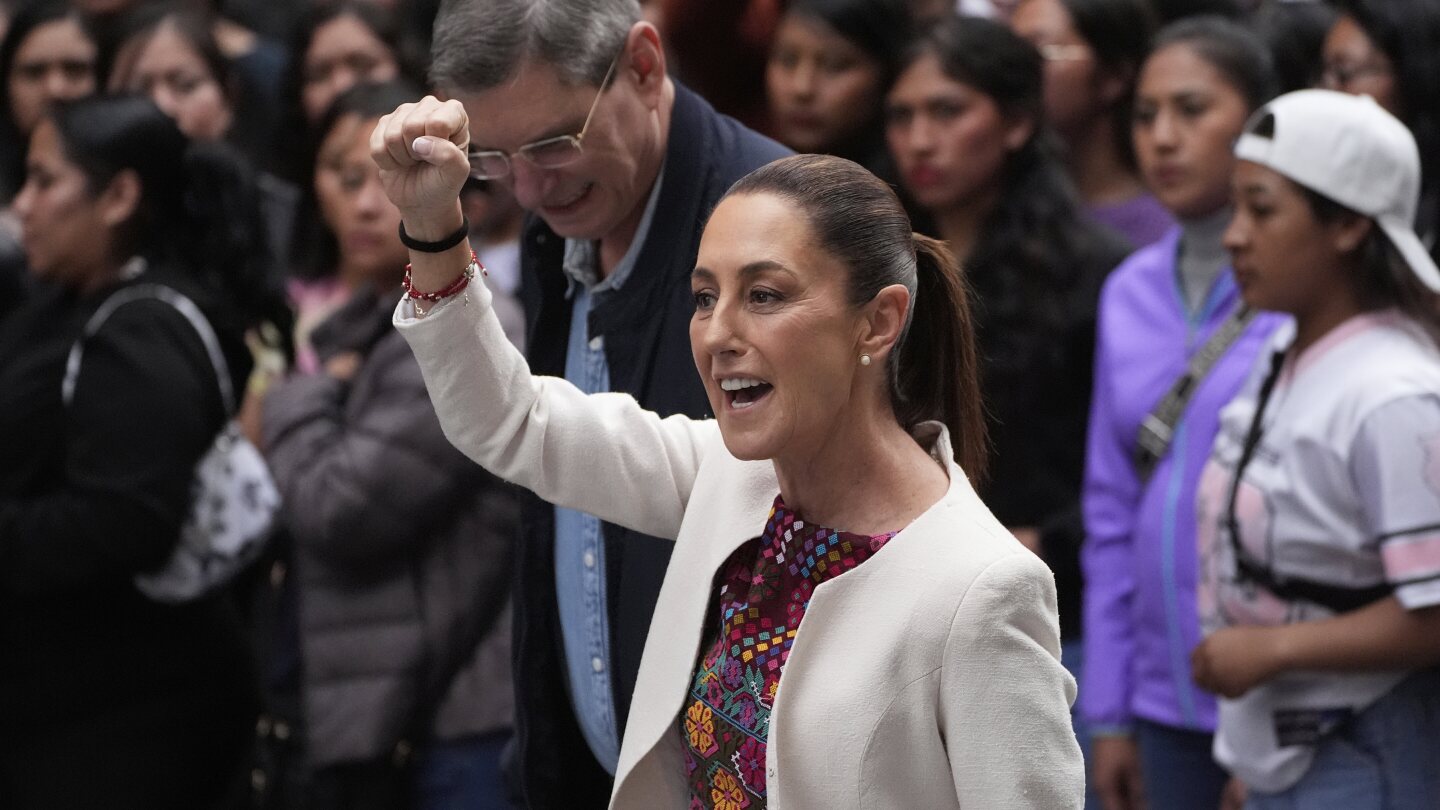The recent incursion of Mexican police into Guatemalan territory has sparked diplomatic tensions, leading President Claudia Sheinbaum to issue a formal apology. This incident, occurring during a pursuit of alleged criminals, has raised serious questions about border security and national sovereignty. The response from both governments highlights the importance of maintaining respectful and coordinated relationships, especially in border regions frequently impacted by organized crime.
This article delves into the details surrounding the incursion, the official reactions from both Mexico and Guatemala, and the broader implications for regional security cooperation. We will explore the potential consequences of this event on future law enforcement activities and the ongoing efforts to combat transnational crime along the shared border.
Sheinbaum’s Apology and Mexico’s Response
President Claudia Sheinbaum publicly apologized to Guatemala for the unauthorized incursion by Mexican police officers. She emphasized that violating another country’s sovereignty is unacceptable and stated that the officers involved should face consequences for their actions. This apology was accompanied by a formal diplomatic note from the Mexican government to Guatemala, reiterating Mexico’s commitment to respecting international law and the territorial integrity of its neighbors.
According to the Associated Press, “In a note, the Mexican government expressed its apology with the neighboring country and reiterated its commitment to the defense of territorial sovereignty and international law.” This swift response aims to mitigate potential diplomatic fallout and reassure Guatemala of Mexico’s dedication to maintaining a cooperative relationship.
Guatemala’s Protest and Demands
Guatemala’s Foreign Ministry responded to the incursion by issuing a formal protest to Mexico’s Secretariat of Foreign Relations. The ministry condemned the actions of the Mexican police and demanded a thorough investigation into the incident. The Guatemalan government stressed the importance of respecting the established border zones and called for reciprocal respect in all future interactions.
The Foreign Ministry stated that it “delivered a note of protest to the Secretariat of Foreign Relations of Mexico for the incursion of elements of the Immediate Reaction Forces (Pakal) of Chiapas to Guatemalan territory and asked the Mexican authorities to investigate “this serious incident,” as well as the reciprocal respect in the border areas.”
Details of the Police Incursion
The incident occurred when police officers from the southern state of Chiapas, Mexico, crossed into Guatemala while pursuing suspected criminals. The officers were reportedly traveling in at least three armored vehicles. The chase culminated in the Guatemalan town of La Mesilla, near the border. Initial reports indicated that the individuals being pursued were allegedly involved in an attack in the Mexican municipality of Frontera Comalapa, where several police officers were killed.
Chiapas authorities confirmed that four armed men, allegedly linked to the Cartel Chiapas-Guatemala, died during the operation. The secretary of Security of Chiapas, Óscar Aparicio Avendaño, told AP that the deceased were identified as “alleged members of the Cartel Chiapas-Guatemala, an armed wing of the Cartel Jalisco Nueva Generación that operates in that border area.”
Reinforcements and Binational Coordination
In response to the security challenges along the Mexico-Guatemala border, President Sheinbaum announced plans to reinforce a binational group focused on coordinating security actions. The goal is to ensure that both countries work together effectively to address cross-border crime while respecting each other’s territorial boundaries. The emphasis is on enhancing collaboration and communication to prevent future incidents.
Sheinbaum stated that “Everyone should work in their own territory and establish forms of coordination.” This approach seeks to balance the need for effective law enforcement with the imperative of respecting national sovereignty.
Accusations of Guatemalan Security Collusion
Amid the tensions arising from the border incident, accusations have surfaced regarding the alleged collusion of Guatemalan security forces with criminal elements. Ramírez Aguilar, the governor, pointed to videos purportedly showing a Guatemalan army vehicle providing cover for criminals during the confrontation with Mexican police. These allegations have added another layer of complexity to the situation.
When asked about these allegations, Sheinbaum responded that “if there is any particular complaint, then it should be seen at this level of security coordination between the two countries.” This indicates a willingness to address the accusations through established channels of communication and cooperation.
Strategic Importance of Frontera Comalapa
The town of Frontera Comalapa, located on the border with Guatemala, is a critical area for criminal organizations. It serves as the starting point for two of six major routes used to traffic arms, drugs, and migrants from Central America into Mexico and the United States. This strategic importance underscores the challenges faced by law enforcement in the region and the need for enhanced security measures.
According to the Mexican Secretariat of National Defense, Frontera Comalapa “is crucial for criminal organizations, since there begin two of six routes of weapons, drugs and migrants that go from Central America to Mexico and the United States.”
Conclusion: Implications for Regional Security
The incursion by Mexican police into Guatemala and the subsequent apology from President Sheinbaum highlight the delicate balance between national sovereignty and the necessity for cross-border cooperation in combating crime. The incident underscores the importance of clear protocols and coordinated efforts to maintain stability in border regions. As both countries move forward, addressing the allegations of collusion and reinforcing binational security groups will be essential steps in fostering a more secure and respectful relationship.
The key takeaways from this event include the critical need for respecting territorial boundaries, the significance of transparent communication between neighboring countries, and the ongoing challenges posed by organized crime in the border region. The future of Mexico-Guatemala relations will likely depend on how effectively both governments address these issues and work together to prevent similar incidents in the future.

Leave a Reply